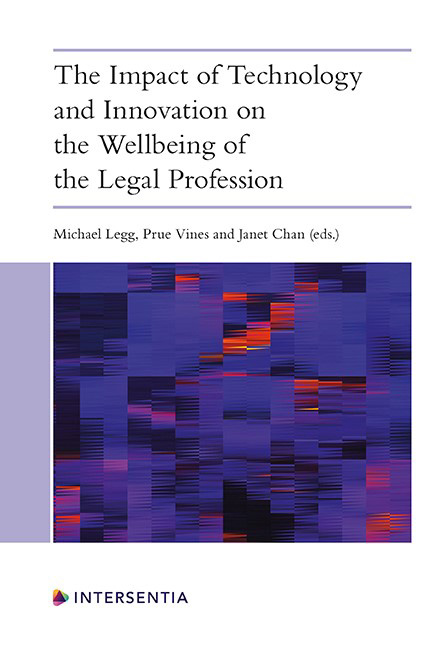Chapter 3 - The Paradox of Satisfaction and Distress Among Lawyers: Implications for a Changing Field
Published online by Cambridge University Press: 22 December 2020
Summary
INTRODUCTION: SATISFACTION AND MENTAL HEALTH OF LAWYERS
Surveys over the last 12 years have highlighted the prevalence of mental health and wellbeing issues among Australian lawyers. The 2006 annual survey of Australian professionals found that members of the legal profession were more likely than other similar professionals to report moderate to severe symptoms of depression (about 16% compared with 8% for engineering and 10% for accounting professionals) and to use alcohol and other drugs to manage feelings of sadness and depression (about 5% compared with 2% for engineering and 2.5% for accounting professionals). A 2009 survey of over 2000 Australian law students, solicitors and barristers showed that nearly 60% of the respondents reported a moderate-to-very-high level of psychological distress. Using a different scale, a 2013 national survey of Australian lawyers, Chan, Poynton and Bruce found a much higher proportion of respondents (26 to 32%)– compared with the population norm of 13%– reported experiencing moderate to extreme symptoms of depression, stress and anxiety. Similar results were found in a smaller study of Australian lawyers, reporting an alarmingly high level (nearly 50%) of stress symptoms.
Overseas research evidence on this issue is mixed. For example, Schiltz‘s review of the American empirical literature suggests that compared with the general population, lawyers were more likely to be depressed, to suffer from anxiety or other mental disorder, to abuse alcohol and drugs, and to commit suicide. In contrast, Dinovitzer and Garth cite a number of systematic studies that show that lawyers reported a generally high level of job satisfaction. It has been argued by Organ, who completed a comprehensive review of the North American research literature on lawyers in the past 25 years, that empirical studies have shown that‘ on a fairly consistent basis– roughly 79– 80 per cent of attorneys– indicate that they are positively satisfied with their jobs and/or careers‘. Organ found variations in satisfaction among subgroups of lawyers: experienced lawyers are more likely to report greater satisfaction compared with less experienced lawyers, and public sector (or public interest) lawyers show greater satisfaction than those in private (especially large firm) practice, but female lawyers are not less satisfied than male lawyers.
- Type
- Chapter
- Information
- Publisher: IntersentiaPrint publication year: 2020

